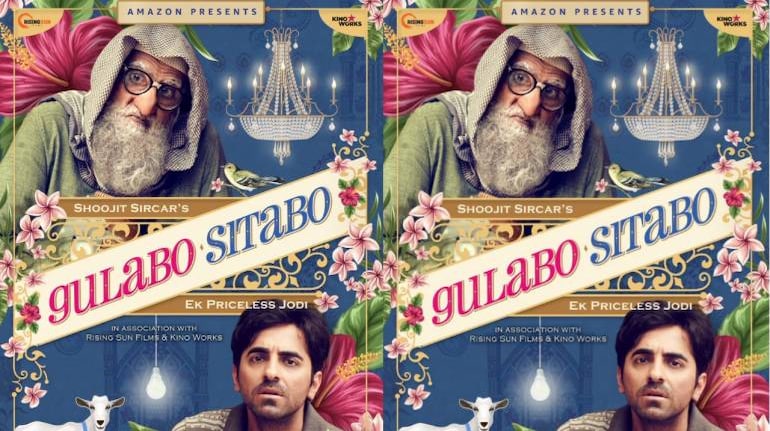



There are no more speculations around films releasing directly on video streaming platforms. Many have already announced digital release dates.
Shoojit Sircar’s Gulabo Sitabo, starring Amitabh Bachchan and Ayushmann Khurrana, will directly release on Amazon Prime on June 12. Nawazuddin Siddiqui’s Ghoomketu will premiere on Zee5 on May 22.
“OTTs are definitely buying more. OTTs are competing with each other and buying more. The buyer market has become more competitive. Hence, digital rights revenue this year will show stronger growth momentum," Aparna Acharekar, Programming Head, Zee5 India.
Digital rights revenue in 2019 grew to Rs 1,900 crore from Rs 1,350 crore in 2018, according to EY 2019 report.
She added that producers of big films may have the patience and financial capacity to hold on, but same is not the case with smaller films.
"Small and medium films are quickly picked up as they offer good content with reasonable price. Hence, it is value for money. For bigger budget films, there is a lot of number crunching. I will have to look at what is my capability to generate revenue out of it, what is the duration for which I am taking these rights, what are the geographies I am taking these rights for. What is happening currently is detailed rights breakdown,” she said.
Utkarsh Sinha, Managing Director, Bexley advisors, a boutique investment bank firm thinks that “smaller productions will be in a position to command higher costs in the absence of competition from the larger platforms (theatres).”
Digital premieres — a relief for manyAccording to veteran producer Anand Pandit, a direct release of films on OTT platforms does translate into a wider audience. "A lot of films can save up on print and marketing costs. For small budget films, a theatrical release might be expensive especially if the film has no known names. In that scenario, a digital release makes more sense.”
Even Siddharth Anand Kumar, VP, Films and Events, Saregama, thinks that a digital release is a relief for a lot of producers who will have to come to terms with the fact that a full-scale theatrical release might be a distant dream.
“We don't know when theatres will be allowed to open and what would be the occupancy levels allowed by the authorities. We also don't know whether audiences will venture out and go to theatres. Given this uncertainty on the theatrical front, a digital release is a viable option,” he said.
Plus, there is demand for fresh content on OTT platforms, he added.
And new content is hard to get in the COVID-19 times when film and TV serial shooting is on halt.
Acharekar calls Ghoomketu’s release on Zee5 a strong and well-timed acquisition. After all, the film is releasing during Eid holiday, a period which has proved lucrative for Salman Khan films.
“The gap a big budget film has left due to no releases in theatres, a film like Ghoomketu is making up for that. Also, movies for us (OTTs) are always good acquisition drivers in terms of new subscribers. Ghoomketu along with its good timing and no competition in terms of big releases will prove beneficial. Plus, the film will get a wider family audience,” she said.
Direct to digital release vs box officeWhile Acharekar thinks direct to digital release is a win-win for both OTTs and viewers, Karan Taurani, Vice President, Elara Capital thinks otherwise.
He believes that direct to digital release caps the amount of collection a movie makes even for some small and medium size movies.
“Movies like Uri: The Surgical Strike and Kabir Singh could have never surpassed Rs 250 crore collection had they not released in cinemas. While Uri was made at a budget of Rs 44 crore, Shahid Kapoor-starrer Kabir Singh’s budget stood at Rs 68 crore,” he said.
He added, “OTT’s payment may not always be attractive. Large global OTT’s always prefer investing into web series content as it gives them sticky audience who can binge watch as compared to movies. Many OTT’s don’t end up paying a mark-up of anything more than 20-25 percent to a producer which caps his income.”
Discover the latest Business News, Sensex, and Nifty updates. Obtain Personal Finance insights, tax queries, and expert opinions on Moneycontrol or download the Moneycontrol App to stay updated!
Find the best of Al News in one place, specially curated for you every weekend.
Stay on top of the latest tech trends and biggest startup news.